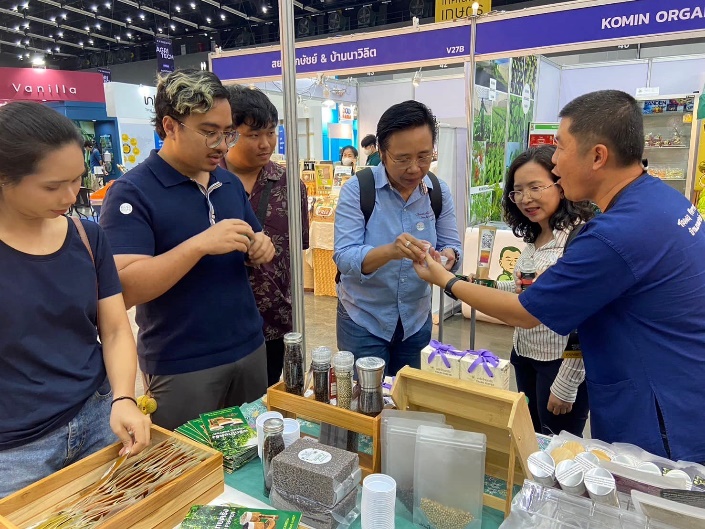Reporters: Mr. Sujinda Saehan, Mr. Ekkajak Intarat, Mr. Nitigon Jumniansuk, Mr. Thanet Sangseejun
Evidence Date: May 27th – 28th, 2024
Related SDGs: 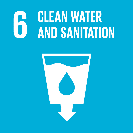
Related Indicators: 6.5.1, 6.5.3, 6.5.5, 6.5.6, 6.5.7
Details:
The Environmental Conservation Club from the Faculty of Science and Fisheries Technology, Rajamangala University of Technology Srivijaya (RUTS), Trang Campus, participated in a hands-on learning and training activity focused on career development through plastic bottle recycling. The activity was supervised by Assistant Professor Nuchanat Nil-or, a lecturer in the Department of Marine and Environmental Science and the club’s advisor.
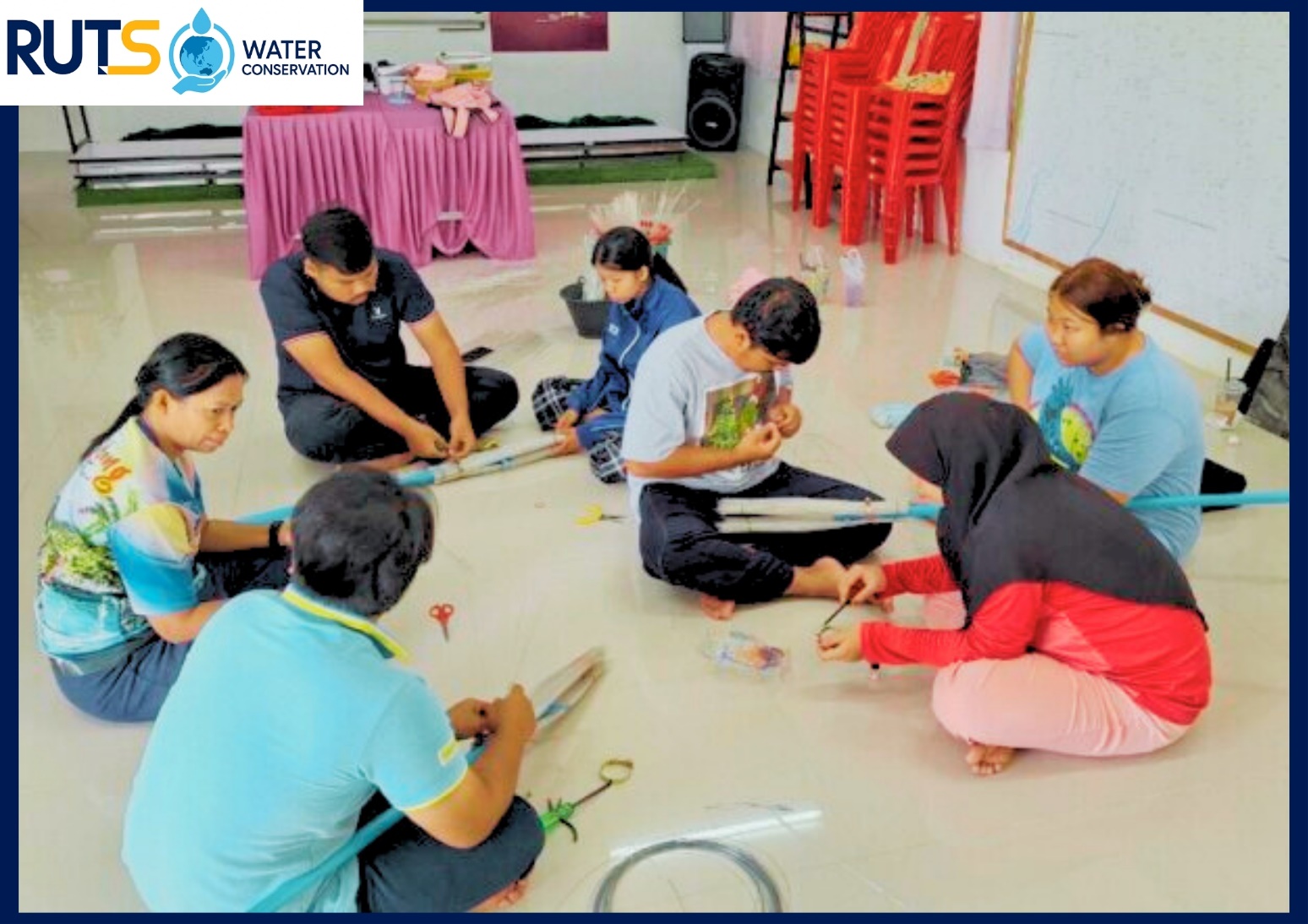
The training took place at the Laem Phak Bia Royal Development Project, Southern Center, from May 27–28, 2024, where students learned about sustainable waste management practices and innovative ways to repurpose plastic bottles into useful and marketable products. This initiative encouraged students to apply environmental knowledge to real-world contexts, promoting creativity, entrepreneurship, and environmental responsibility.
By promoting waste reduction and pollution prevention, the project helps minimize plastic waste that contaminates waterways and marine environments. Plastic waste, particularly single-use bottles, often ends up in rivers and oceans, where it breaks down into microplastics that harm aquatic life and disrupt ecosystems. Through recycling and reusing plastic bottles, participants not only reduce the volume of waste entering natural water systems but also raise awareness about the long-term environmental impacts of improper waste disposal. This contributes directly to protecting water quality and marine biodiversity.
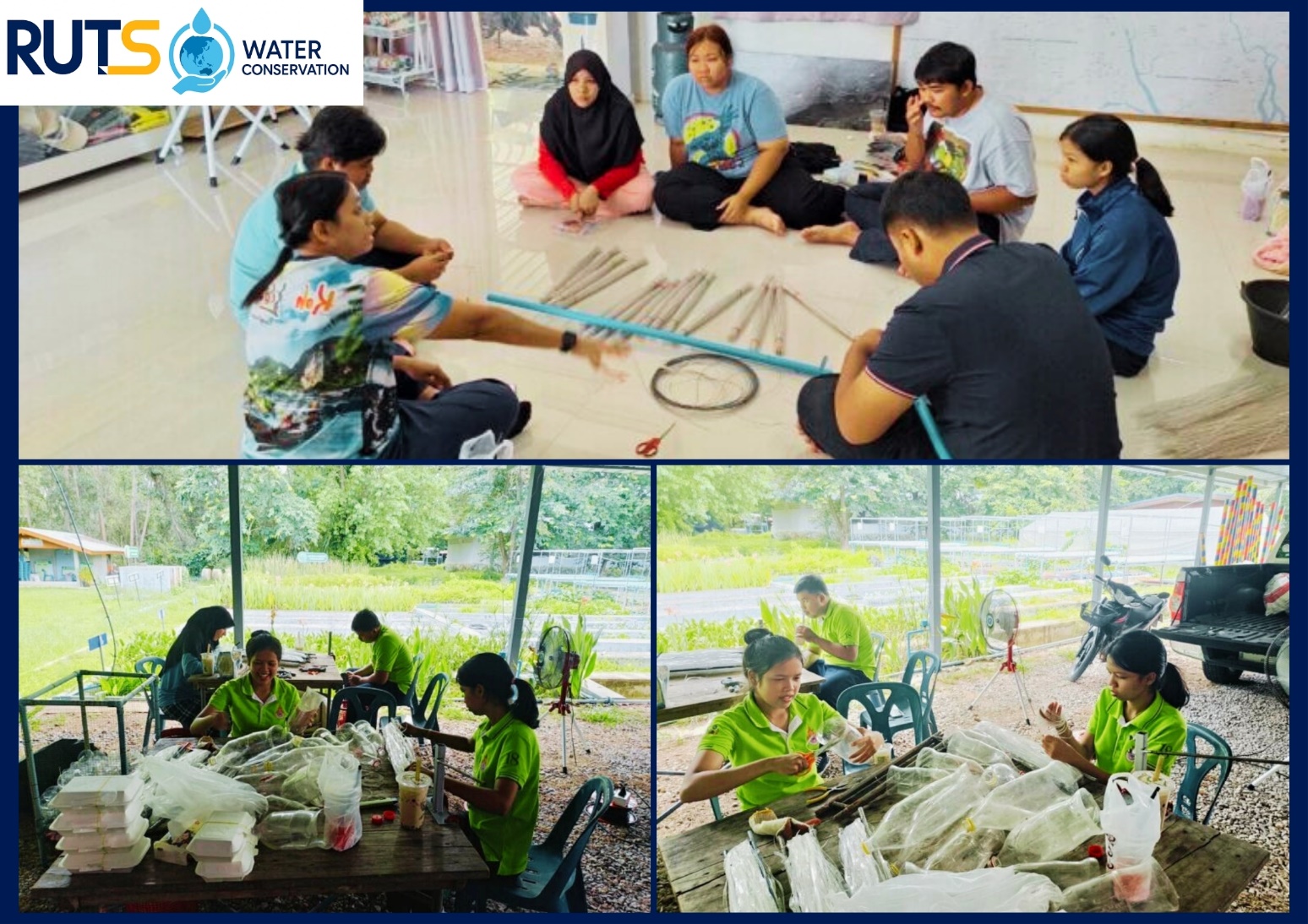
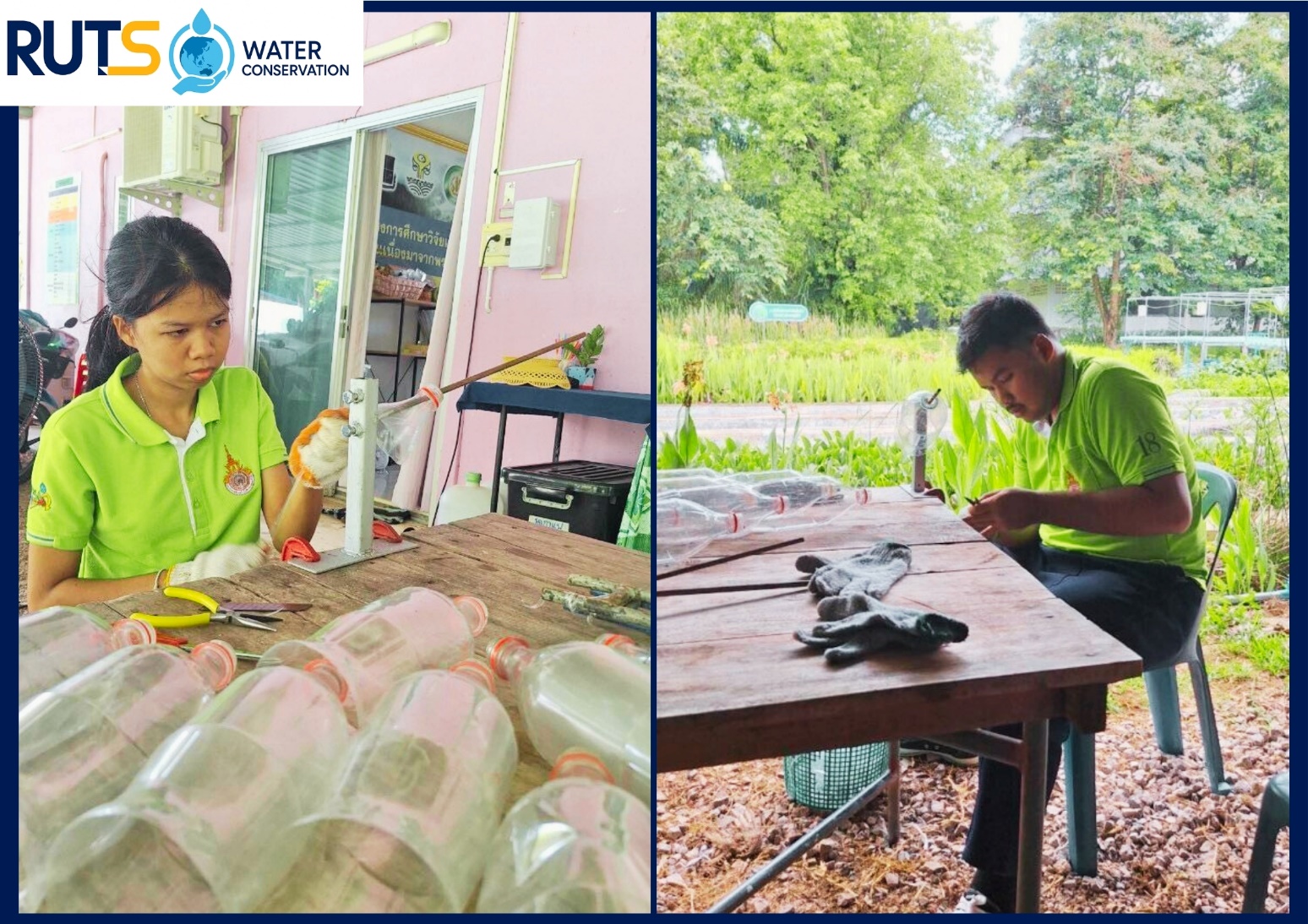
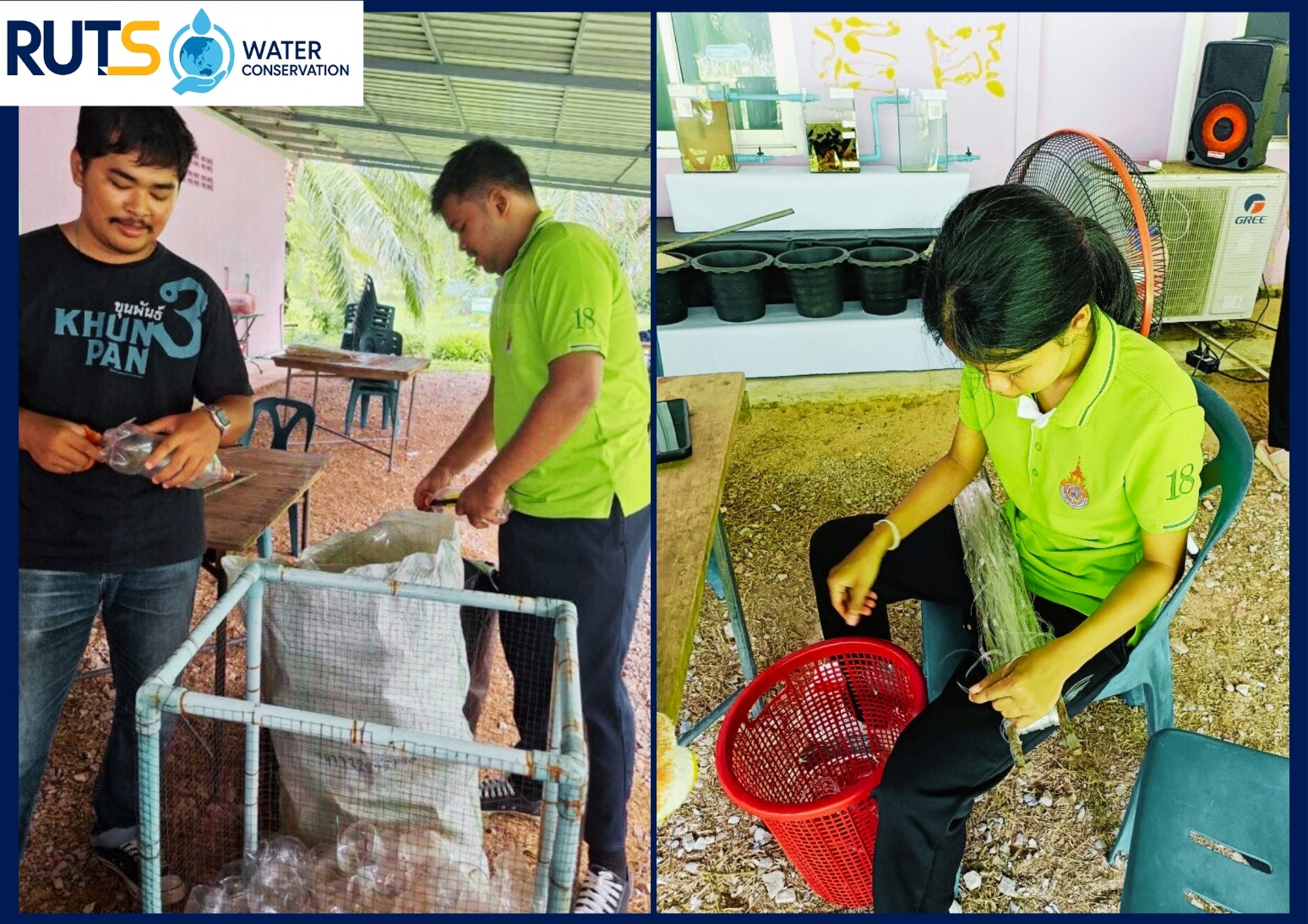
In addition, the project reinforces key practices that help prevent water pollution and support SDG 6: Clean Water and Sanitation by promoting proper waste segregation and recycling systems to reduce the risk of plastic leakage into storm drains and waterways. It also encourages the reduction of single-use plastics and the use of refillable water bottles, decreasing overall waste generation both on campus and within local communities. Through education, students gain a deeper understanding of the link between waste management and clean water resources, recognizing how land-based pollutants impact freshwater and marine environments. The initiative further inspires community-based environmental projects, such as clean-up campaigns and upcycling workshops, which help maintain clean and healthy aquatic ecosystems. Moreover, it supports a circular economy approach by transforming waste materials into valuable resources, reducing the need for new raw materials and alleviating pressure on natural water sources used in plastic production.
Through this initiative, the Environmental Conservation Club demonstrated how education, innovation, and environmental stewardship can work together to address pressing sustainability issues. The project not only reduces waste but also strengthens students’ understanding of the importance of protecting water resources—turning knowledge into action and fostering a lasting culture of sustainability aligned with the goals of SDG 6: Clean Water and Sanitation, SDG 12: Responsible Consumption and Production, and SDG 14: Life Below Water.
Related Links:



